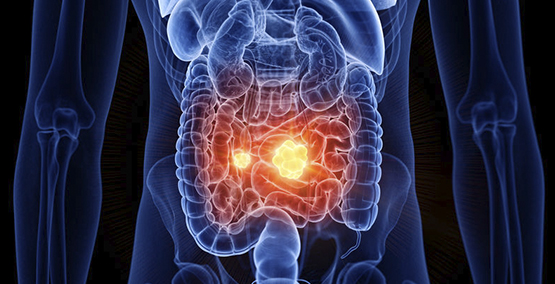
TREATING AN IBD FLARE

When Crohn's or UC symptoms return, that usually suggests IBD (inflammatory bowel disease) in the intestine is becoming active again. That's known as a Flare. It needs to be addressed quickly to get the disease under control. Often, the longer it takes, the harder it is to reverse.
Your doctor will often consider doing some tests to make sure there isn't an infection or other cause of the symptoms coming back. Additional tests may be needed to see if the disease has worsened and spread and to determine what should be done. Some of these tests may be the same as before; but other blood or stool tests may be needed.
Options for Treatment
Once any necessary tests have been done, the best course of making the disease and your symptoms better is to proceed with a treatment plan that includes one or several of these options.
- Changing your diet
- Changing your medicine
- Hospitalization
- Surgery
Restricting or Changing Your Diet
During a flare, most patients don't eat like they usually do. They don't feel like eating the same foods or the same amount. Nausea or discomfort stops from eating as much and usually makes them avoid certain foods. And sometimes, worrying about what might them feel worse also causes them to eat less.
Additionally, your doctor may suggest certain changes in what you eat. Because the intestine may be sore or bleed easily, your doctor may just want you on liquids for a few days, suggest a low fiber or low residue diet or restrict certain foods.
Changing Your Medicine
If no other cause for the flare is found, it's likely your medicine isn't controlling the disease. As a result, your doctor may need to
- Assure you were taking it properly
- Increase the dose
- Add another medicine
- Combine the medicine with a particular diet
- Change the medicine to another one
- Consider surgery for your Crohn's or UC
Hospital Stay
At times, the disease flare is sudden or beyond what can be done while you stay at home. You may not be able to drink enough to stay hydrated; eat enough so that you are at risk of losing weight and having poor nutrition that can lead to more complications; your pain may be at a level that it has to be managed in the hospital; or surgery may be considered. Any of those things may require that you go into the hospital.
Your doctor may suggest bowel rest. That means that you won't be eating anything that your intestine has to process. Mostly it means that you will get fluids given through your veins (IVs). If that lasts more than a few days, you will need a source of nutrition, either
- IV nutrition
- Liquid diet to drink with proteins and calories, or
- Low residue diet, where the nutrients are all removed in the upper intestine, and nothing reaches the lower intestines
Often, the IV will also be used to give you medicines, especially since the intestine may not absorb medicines you take by mouth.
Surgery
When medicines and dietary changes are not working effectively and symptoms continue, it's usually because the disease is more aggressive. Sometimes surgery is required to:
- Remove a section of active disease or a narrowed (blocked) intestine
- Change the intestine's flow pattern
- Drain an infected area or a fistula
With ulcerative colitis, removing the disease portion may solve the problem, though complications can develop. Complications can also develop with surgery for Crohn's disease. One of the major problems in Crohn's disease is that the disease can return in other or neighboring areas and further surgery can be required.
This article, as well as all others, was reviewed and edited by a member of our Medical Advisory Board.
Subscribe Be the first to know




